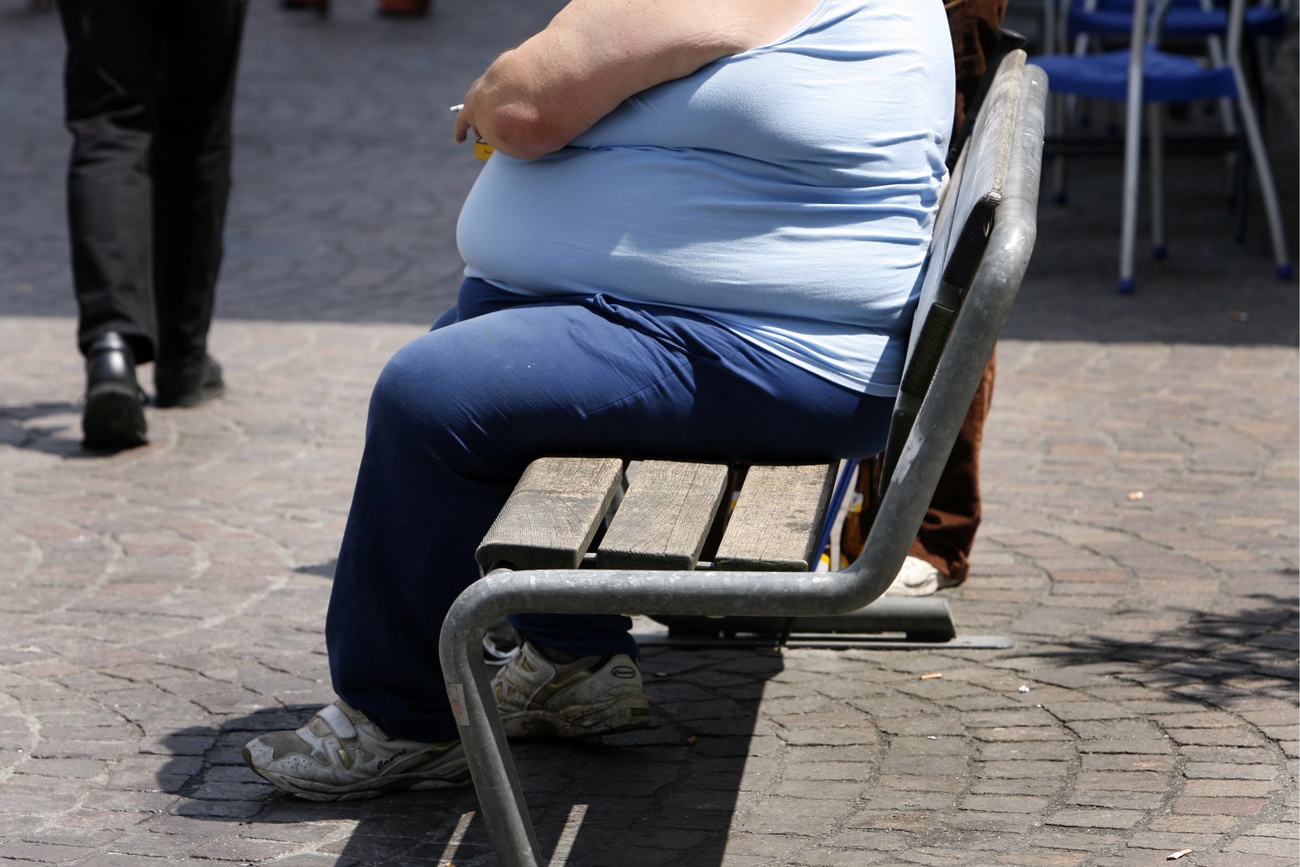
Swiss court recognises obesity as a disability under certain conditions

People suffering from obesity are now entitled to an invalidity pension in certain cases. The fact that the condition can be treated no longer automatically excludes the granting of benefits, ruled the Federal Court, which is adapting its case law.
Until now, obesity was not in principle considered to be a disability that entitles a person access to an invalidity pension. It was only covered by invalidity insurance if it led to physical or psychological disorders or if such disorders were the cause, the Court pointed out in a ruling published on Thursday.
+ Get the most important news directly in your inbox
This case law was based on the idea that returning to a normal weight was a matter of will. It was inspired by the case law developed for addictions. However, practice with regard to addictions has changed: the invalidity insurance office must now assess the extent to which the addiction affects the insured person’s ability to work.
Complex illness
According to the Federal Court, there is no justification for maintaining the case law specific to obesity, which ruled out any entitlement where treatment was possible. Obesity is a chronic and complex somatic disease.
+ Swiss alliance calls for obesity to be recognised as a disease
From now on, the extent to which the disease restricts the ability to work will have to be considered on a case-by-case basis. But the obligation to reduce the damage also applies to obesity: entitlement to an invalidity pension presupposes that the person concerned undertakes the treatment that can reasonably be required, for example, dietary therapy, medication, behavioural therapy or a physical activity programme.
+ Roche’s big bet on big diseases
In this case, the Federal Court partially upheld the appeal of a woman from canton Aargau who suffers from class III obesity, i.e., the extreme stage, and who had unsuccessfully applied for a pension. The judges ruled that it was clear the woman was not immediately able to work at 100%. The cantonal invalidity insurance office must now re-examine her case and order medical examinations concerning the obligation to reduce the damage.
Translated from French with DeepL/gw
This news story has been written and carefully fact-checked by an external editorial team. At SWI swissinfo.ch we select the most relevant news for an international audience and use automatic translation tools such as DeepL to translate it into English. Providing you with automatically translated news gives us the time to write more in-depth articles.
If you want to know more about how we work, have a look here, if you want to learn more about how we use technology, click here, and if you have feedback on this news story please write to english@swissinfo.ch.

In compliance with the JTI standards
More: SWI swissinfo.ch certified by the Journalism Trust Initiative




























You can find an overview of ongoing debates with our journalists here . Please join us!
If you want to start a conversation about a topic raised in this article or want to report factual errors, email us at english@swissinfo.ch.